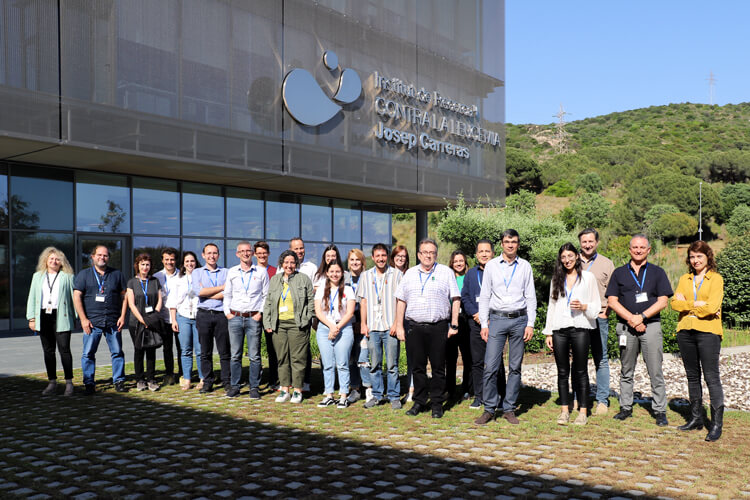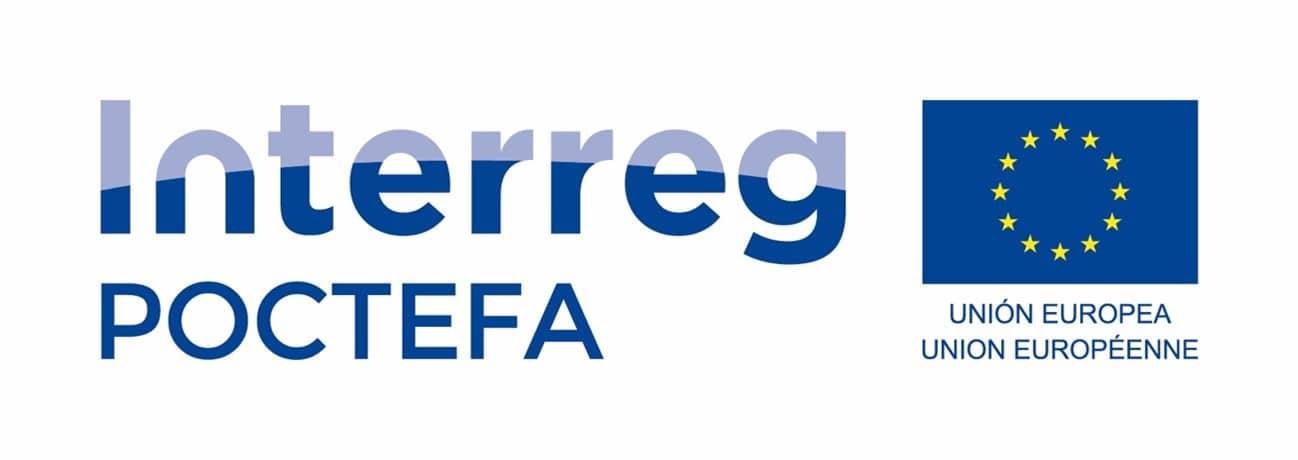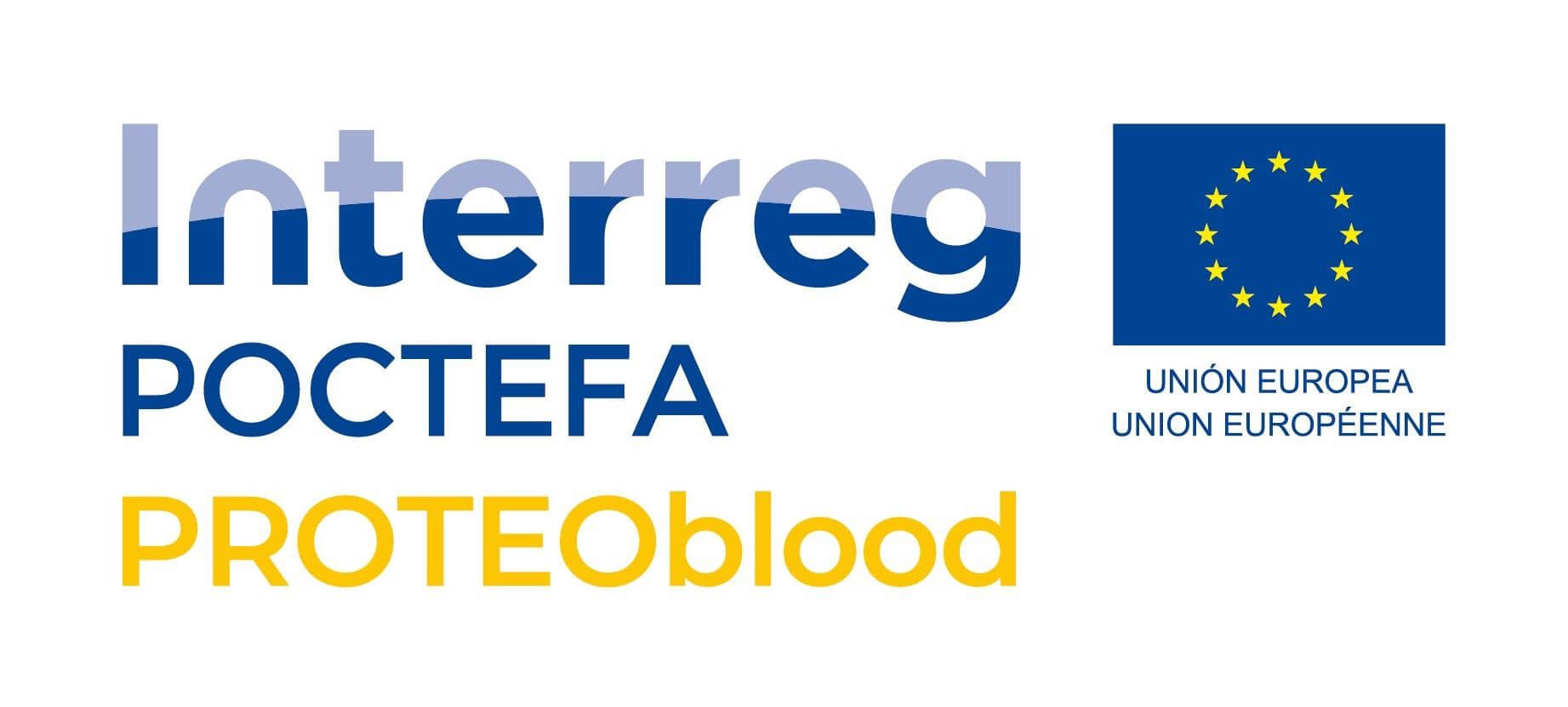New Therapies to Treat Leukaemia

This past May, the closing session of the European PROTEOblood project took place at the Josep Carreras Leukaemia Research Institute (IJC). Led by Dr Gaël Roué, head of the IJC group, researchers from Spain and France joined this cooperative network with the aim of studying and understanding the relationship between imbalances in protein homeostasis and the development of certain subtypes of leukaemia and lymphomas while also seeking personalized treatments to cure them.
The researchers in this network are working towards an in-depth understanding of the process of ubiquitination, a regulator of the protein degradation and destruction cycle and its involvement in cellular alterations that lead to blood cancer, by creating preclinical models and avant-garde proteomic approaches associated with the analysis of systems biology and molecule design that enable the complete characterization of proteinopathies and the development of effective therapies.
In addition to the Josep Carreras Institute, the PROTEOblood project has included participation from the Vall d’Hebron Institute of Oncology (VHIO) Experimental Haematology Group; the Pharmaceutical Chemistry Group (GQF) at IQS; the Institute of Health and Medical Research (Inserm) in France; the CICbioGUNE centre in the Basque Country; the French National Centre for Science Research (CNRS); and the Spanish biotechnology company Anaxomics Biotech.
Contributions from the GQF group at IQS
In concrete, GQF researchers led by Dr Jose I. Borrell have developed an irreversible inhibitor of the HOIP target, which is part of the LUBAC complex, an E3 ligase that catalyses the linear chains of ubiquitin in the activation of the pathway of the nuclear factor Kappa B’ (NF-KB), the expression of which increases in many lymphoma cases. These types of inhibitors react by forming a covalent bond with the HOIP catalytic cysteine (cis-885), selectively and irreversibly blocking the receptor to prevent cell proliferation.
All tests have so far been carried out in vitro, with in vivo tests expected soon.
“In terms of participation, we have consolidated our ties through the PROTEOblood project with Dr Gaël Roué, with whom our group has been working for more than ten years,” stated Dr Borrell. He added: “We’ll continue to collaborate within this research area on more projects, and we have even launched a joint doctoral thesis between the GQF and Dr Roué’s group at the IJC. Moreover, we were granted a preliminary coordinated project in this area not too long ago by the Ministry of Science and Innovation, on which Dr Roué is acting as the coordinator.”
The PROTEOblood project has been co-financed by the European Regional Development Fund (ERDF) within the framework of the European cooperation programme Interreg POCTEFA (2014-2020), under the strategic axis “Enhancing innovation and competitiveness.”
POCTEFA aims to strengthen the economic and social integration of the Spain – France – Andorra border area, focusing aid on the development of cross-border economic, social, and environmental activities through joint strategies that promote sustainable development in the area.
RELATED PEOPLE:
RELATED PROJECTS
ProteoBlood (Red cooperativa franco-española para el análisis de proteinopatías y el desarrollo de terapias individualizadas en cánceres hematológicos)



